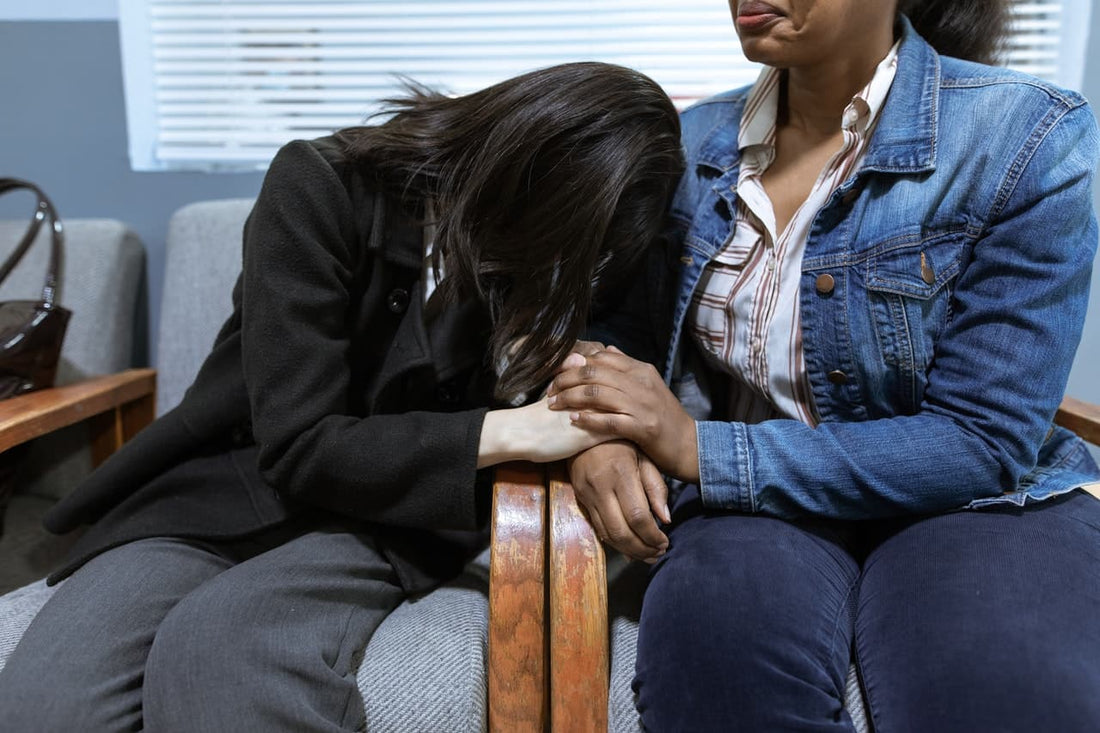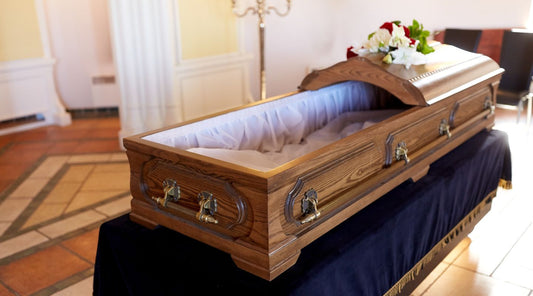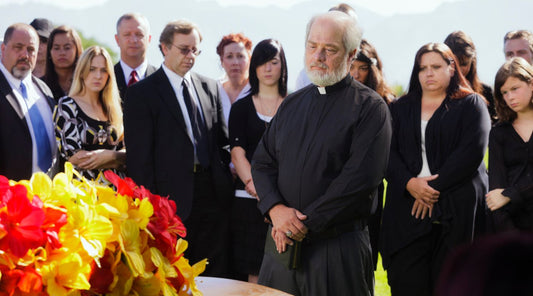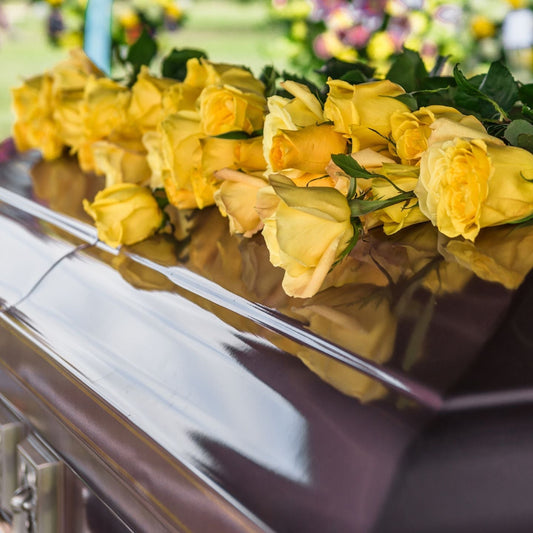
What happens to debt when someone dies?
I know you have a billion reasons to borrow right now. You need the credit cards to stay afloat. You still haven’t covered your college student loan debt. You just got an auto loan for that dream car. And then there’s the mortgage you’re filing for.
Indeed, we all live debt-ridden lives. So, don’t beat yourself up.
But have you ever wondered what happens to your debt the moment you bite the big one?
Will your debt be passed on to your family? (Oooops, dreadful!)
Will your debt be waived off?
Will your creditors use your life insurance to resolve your debts? What if you don’t have a life insurance policy that’s cover enough?
Will they come for your assets? Like, evict your wife and kids from your home?
Or will they ask your friends and colleagues to save your name from the financial mess?
Well, the list of possibilities goes on and on. If you'd like to know what happens to debt when someone dies, I suggest you stick with us as we explore the world of Debt and Death.
What happens to debt after death?
Debt doesn’t suddenly disappear when you die. You still have to pay. And depending on the type of debt and the state you lived in, your loved ones may be compelled to offset a part of your debt once you pass away.
Sounds like a whole lot of burden on the people you love? Well, that’s the system. And you haven’t even heard it all yet.
In some cases, creditors may even open a probate process against you, where assets from your estate are distributed to settle your financial mess. Imagine, if some of these estates are where your loved ones reside, what do you think would become of them?
It gets worse.
In the instance where assets in your name aren't enough to offset your debts, creditors may look into your joint assets – assets you own with other people, say your spouse.
When that happens, your spouse loses a part or all of theirs.
Harsh!
But, chin up, there's good news. Not all debts are handled this way. As you well know, debts come in different shapes and forms. There are student loan debts, personal loan debt, debts owed to credit card companies, mortgage debt, and even medical debt.
Each one of these is handled differently. And sometimes, the family of the deceased may get financial support from the government.

How is mortgage debt handled when someone dies?
When there is a co-signer:
As far as mortgage debts are concerned, a co-signer is responsible for continuing payments the moment someone dies.
I know that may be quite harsh on the co-signer, especially if they're the deceased's spouse – adding the trouble of mortgage payment to their grief. But the law is the law.
My financial advice is that people should put enough money toward a life insurance policy so that it can help offset the burden of debt on the shoulders of spouses, heirs, and loved ones.
When there is no co-signer, but the heirs want to keep the home:
If there is no co-signer, it simply means no one has to take responsibility for the mortgage debt.
Does that mean the spouse and heirs of the deceased get to keep the property then? Not so fast. If they want to keep the property, they’ll have to keep paying back the mortgage debt.
And that’s not even all.
Because the house is going under new ownership, the lender will require proof to show that, indeed, there's been a transfer of ownership. Usually, they'll need the heir to provide proof of the person's death, as well as proof of their own heirship.
If the heir is a son/daughter of the deceased, they can provide proof of their heirship through their birth certificate and other necessary documents. Don't worry; if you purchase your funeral caskets from companies like Trusted Caskets, they’ll provide you with all the documents you need to show that indeed the deceased is dead.
When there is no co-signer, and the heirs don't want to keep the home:
In this case, the deceased's family will have to put the house for sale. And while waiting for a buyer, they'll have to keep making payments toward the mortgage debt.
Once the property is sold, they will have to pay off the remainder of the loan from whatever amount they receive.
When there is no co-signer, and no one is assuming responsibility:
If no one assumes responsibility for the mortgage debt, the lender will have no choice but to foreclose the property. And then recover its money through the property sale.
How is business loan debt handled when someone dies?
As we all know, a sole proprietorship business solely hinges on the length of life of the business owner. As such, whatever happens to the owner happens to the business, too.
In the case of debt and death, it’s normal to wonder whether the same approach holds, too? That is, does the debt get canceled when the sole proprietor dies?
Well, the answer, in this case, is a little bit tricky.

First case scenario: The business falls into the estate
As the sole proprietor, the business automatically falls into the estate of assets you own. As such, any business debt owed will be charged against your existing estate. The legal executor of the assets will then place the properties on sale to resolve existing debts. Anything left after that is then willed to the family of the deceased.
Second case scenario: Estate not enough to offset debts
It is possible that even after merging the business assets with the deceased’s personal assets, there may still not be enough funds to pay off existing debts.
When this happens, the deceased's family may be liable to pay off what's left.
This is particularly true for situations where the business ownership is passed on to a legal heir. In that case, creditors will assume the business is back in operation and demand that that person become liable for the debt payments.
How is student loan debt handled when someone dies?
Thanks to private student loans and federal loan programs, student loan debt ranks amongst the largest category of loan structure. Showing below is a reflection of the extent of student loans in the US.

If you die owing a student loan (whether private student loan or federal), what happens?
What happens if you die owing a federal student loan?
The federal government has no interest in victimizing your loved ones when you die. If you die owing a federal student loan, just know the loan will be waived. And your family will not be held responsible.
It gets even better.
In case your parents or legal guardians have taken a federal student loan to fund your academics, this, too, will be waived as long as they can prove your death. And with reputable funeral services like Trusted Casket handling the funeral proceedings, you bet that will be arranged.
What happens if you die owing a private student loan?
Unfortunately, private student loans aren’t so lenient.
The deceased's life insurance policy will first be looked into, after which assets in their name will be considered. If all these still aren't enough to offset the student loan debt, the lender might consider dragging the co-signer into the matter. In which case, they will ask the co-signer to repay immediately.
The beautiful thing about student loans is they are easy to negotiate. If you're a co-signer for the deceased and the creditor is breathing down your neck, you can hire a debt settlement attorney to help look into the case.
How is credit card loan debt handled when someone dies?
I know you probably hate credit card companies because they sometimes make life unbearable for people.
But guess what? Credit card debts are the sweetest to owe. You know why? Because they simply die with the debtor.
Ok, maybe not so straightforward. But that’s technically the idea.
Credit cards with joint account owners
A joint credit card account is similar to a co-signed loan. And like co-signed loans, when one of the borrowers dies, the surviving borrower is expected to resolve the existing credit card debt.
Luckily, joint credit card accounts aren’t really a thing anymore these days. Who still takes those?
Credit cards with authorized users:
Yes, this is the one we all love. You know, that type of credit card account that allows you to spend your spouse's credit card balance with them. So, what happens after they die?
You walk away like you didn't even spend a dime out of the money.
As an authorized card user, you receive a credit card in your name for an account that’s owned by someone else (usually a spouse). With this card, you get to spend money and buy things as you would with your card.
Now, if the primary account owner dies, you generally aren't required to pay the credit card debt they owed, even though you spent a part of it.

How are credit card debts settled?
In the wake of someone’s death, credit card companies may try to get the deceased’s family to put the person’s estate toward the debt payment. But you need not answer them.
Credit card debt is an unsecured debt since it has no collateral. When a person dies, state laws normally prioritize the payment of secured loan debts first. The debt collectors are also follow their rules, and this is a good idea to know your rights. And that means settling mortgage servicers and auto loan lenders first before anyone else.
Even if the deceased’s estate will be put toward credit card debt, that’s up to the state probate court to decide.
How is car loan debt handled when someone dies?
So, what happens to that car you haven't finished paying for when you die?
Does it get driven away from your compound? Does the lender force your family to continue making payments?
Well, not exactly.
The settling of a car loan debt after a person dies is very similar to the structure discussed for mortgage debt. That is, there are four options on the table, which are:
- Being a secured loan, your estate gets directed at the debt payment
- Anyone who inherits the car gets to continue repayment
- Car is sold, and the amount recouped is used in settling the car loan debt
- Car is returned to the lender, and everybody walks away happy.
How is personal loan debt handled when someone dies?
To understand this section of the post, you must understand there are various categories of personal loans. And each category is handled differently.
Types of personal loans and how their debts are handled when the borrower dies
Unsecured personal loans: This refers to cash offered by creditors without collateral. Common examples include payday loans, credit cards, instant cash, etc.
What happens when you die?
Usually, because they're unsecured, they're always on the bottom of the priority list when someone dies. As such, many a time, they're usually written off. By the time the more important debts would have been cleared, there may not be any money left to cater to unsecured loan debts.

Secured personal loans:This refers to personal loans backed by collateral. They're quite similar to mortgage loans and car loans. And as such, in the event of death, the creditor may choose to take your collateral if nobody assumes responsibility for repayment.
How is medical loan debt handled when someone dies?
Finally, medical debt. Who pays when you die?
Logically, you might think that since the care provider couldn't save your life, they should at least be considerate and waive your medical debt.
Well, they aren’t. And in most cases, medical debts are charged against the estate or any life insurance policy of the deceased.
However, in the event you don’t have enough in your estate, the debt collector may decide to waive the debt.

Conclusion
So, there you have it – everything that can happen to your property and loved ones when you leave debts behind.
Clearly, none of these situations is palatable.
It is hard enough that your family will have to deal with your loss. Don’t make the process harder for them by leaving a mountain of debt behind.
Blog Author: Tim


